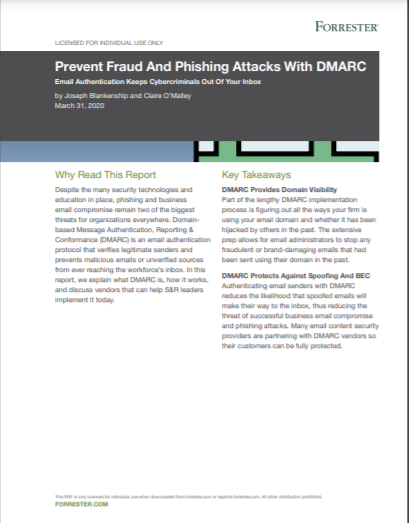Recent Microsoft attacks traced to secretive Israeli spyware firm
Candiru, which trades exclusively with governments, distributed zero-day exploits for vulnerabilities patched this week


Microsoft and CitizenLab have revealed that attacks launched against two recently-patched Windows zero-days were supported by a secretive Israeli-based company that specialises in selling spyware and exploits.
Microsoft believes the vendor named Candiru, codenamed Sourgum, developed spyware dubbed DevilsTongue that unknown clients used to exploit a pair of vulnerabilities the company fixed as part of its latest wave of Patch Tuesday updates.
These are CVE-2021-31979 and CVE-2021-33771, both privilege escalation vulnerabilities that allow attackers to escape browser sandboxes and gain kernel code execution privileges. They were patched on 13 July alongside another exploited zero-day and the PrintNightmare vulnerability.
As part of its investigation, Microsoft identified at least 100 victims based across the Middle East and in the UK and Singapore, including human rights activists, journalists, political dissidents, and politicians.
“Private-sector offensive actors are private companies that manufacture and sell cyberweapons in hacking-as-a-service packages, often to government agencies around the world, to hack into their targets’ computers, phones, network infrastructure, and other devices,” said Microsoft’s Threat Intelligence Centre (MSTIC). “MSTIC believes Sourgum is an Israel-based private-sector offensive actor.
“Citizen Lab asserts with high confidence that Sourgum is an Israeli company commonly known as Candiru. Third-party reports indicate Candiru produces “hacking tools [that] are used to break into computers and servers”.
Citizen Lab’s report reveals that Candiru is a mercenary spyware firm that markets ‘untraceable’ spyware exclusively to government customers, with products including systems that spy on devices and cloud accounts. Its previous customers include Saudi Arabia and the United Arab Emirates.
Get the ITPro daily newsletter
Sign up today and you will receive a free copy of our Future Focus 2025 report - the leading guidance on AI, cybersecurity and other IT challenges as per 700+ senior executives
Candiru appears to license its spyware by the ‘number of concurrent infections’ which would reflect the high number of targets that can be under active surveillance at any one time. The fine print on a product proposal Citizen Lab analysed also suggested there’s a list of restricted countries clients cannot attack, which are the US, Russia, China, Israel, and Iran.
The company is similar in nature to NSO Group, another infamous Israeli company that developed the Pegasus spyware that its clients used to target high-profile WhatsApp accounts in 2019.
Microsoft identified DevilsTonge, the tool used to exploit the two Microsoft zero-days, as a complex, modular, multi-threaded malware written in C and C++ with novel capabilities.
RELATED RESOURCE

Prevent fraud and phishing attacks with DMARC
How to use domain-based message authentication, reporting, and conformance for email security
Its main function resides in Dynamic Link Library files that are encrypted on disk, and only decrypted in memory, for example, meaning it’s difficult to detect. Configuration and tasking data is separate from the malware, meaning analysis is hard, while the malware has both user mode and kernel mode capabilities. The malware is also embedded with further evasion mechanisms, although Microsoft is yet to fully analyse the nature of these.
Citizen Lab also identified at least 764 domain names likely in use by Candiru and its clientele to lure victims, with many of these disguised as progressive and charitable organisations like Black Lives Matter and Amnesty International. Other domains were masquerading as media companies and civil-society themed entities.
“Candiru’s apparent widespread presence, and the use of its surveillance technology against global civil society, is a potent reminder that the mercenary spyware industry contains many players and is prone to widespread abuse,” said Citizen Lab researchers Bill Marczak, Kristin Berdan, Bahr Abdul Razzak, and Ron Deibert.
“This case demonstrates, yet again, that in the absence of any international safeguards or strong government export controls, spyware vendors will sell to government clients who will routinely abuse their services. Many governments that are eager to acquire sophisticated surveillance technologies lack robust safeguards over their domestic and foreign security agencies. Many are characterised by poor human rights track records.”

Keumars Afifi-Sabet is a writer and editor that specialises in public sector, cyber security, and cloud computing. He first joined ITPro as a staff writer in April 2018 and eventually became its Features Editor. Although a regular contributor to other tech sites in the past, these days you will find Keumars on LiveScience, where he runs its Technology section.
-
 Cleo attack victim list grows as Hertz confirms customer data stolen
Cleo attack victim list grows as Hertz confirms customer data stolenNews Hertz has confirmed it suffered a data breach as a result of the Cleo zero-day vulnerability in late 2024, with the car rental giant warning that customer data was stolen.
By Ross Kelly
-
 Lateral moves in tech: Why leaders should support employee mobility
Lateral moves in tech: Why leaders should support employee mobilityIn-depth Encouraging staff to switch roles can have long-term benefits for skills in the tech sector
By Keri Allan
-
 The threat prevention buyer's guide
The threat prevention buyer's guideWhitepaper Find the best advanced and file-based threat protection solution for you
By ITPro
-
 Supply chain as kill chain
Supply chain as kill chainWhitepaper Security in the era Zero Trust
By ITPro
-
 Microsoft under fire for “negligent” security practices in scathing critique by industry exec
Microsoft under fire for “negligent” security practices in scathing critique by industry execNews Microsoft took more than 90 days to issue a partial fix for a critical Azure vulnerability, researchers found
By Ross Kelly
-
 Apple patches zero day linked to spyware campaign
Apple patches zero day linked to spyware campaignNews Kaspersky researchers were the first to report a zero day used in a sophisticated attack chain
By Rory Bathgate
-
 MOVEit cyber attack: Cl0p sparks speculation that it’s lost control of hack
MOVEit cyber attack: Cl0p sparks speculation that it’s lost control of hackNews The hackers return with their second major data-extortion attack of 2023, but may have bitten off more than they can chew
By Connor Jones
-
 Microsoft says it knows who was behind cyber attacks on MOVEit Transfer
Microsoft says it knows who was behind cyber attacks on MOVEit TransferDozens of organizations may have already lost data to hackers exploiting the critical flaw
By Rory Bathgate
-
 Trend Micro security predictions for 2023
Trend Micro security predictions for 2023Whitepaper Prioritise cyber security strategies on capabilities rather than costs
By ITPro
-
 Windows, macOS, and Tesla exploits debuted at Pwn2Own hacking contest
Windows, macOS, and Tesla exploits debuted at Pwn2Own hacking contestNews Researchers took home more than $375,000 in winnings on the first day of the competition
By Ross Kelly